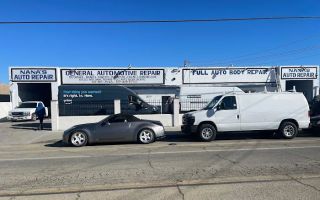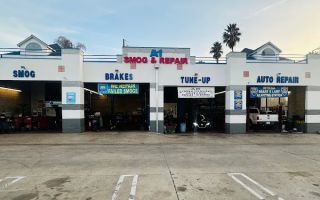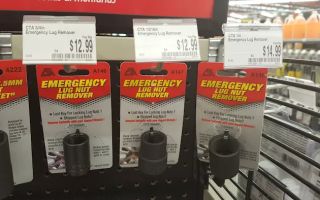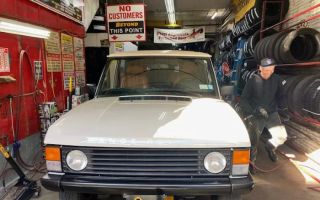How to Prevent Towing Accidents During Harsh Weather Conditions
- Understanding Harsh Weather Conditions and Their Impact on Towing
- Preparation is Key to Preventing Towing Accidents
- Important Safety Measures for Towing in Bad Weather
- Real-Life Towing Accident Case During Harsh Weather
- Choosing the Right Towing Service for Harsh Weather Conditions
Understanding Harsh Weather Conditions and Their Impact on Towing
Towing in harsh weather conditions such as snowstorms, heavy rain, ice, or extreme winds can be a dangerous task. The adverse weather conditions reduce visibility, compromise traction, and increase stopping distances. For those towing large vehicles or heavy-duty equipment, these risks are amplified. Knowing how weather affects towing is the first step to preventing accidents.
Harsh weather can cause vehicles to lose control, trailers to sway or jackknife, and towing equipment to malfunction due to snow, ice, or water buildup. Understanding the specific challenges presented by each type of weather is crucial for ensuring safety during transportation.
Preparation is Key to Preventing Towing Accidents
Preparation is vital to ensure towing safety in adverse conditions. Before heading out, make sure your towing vehicle and equipment are ready to handle the challenges posed by bad weather. Here are a few preparation steps to consider:
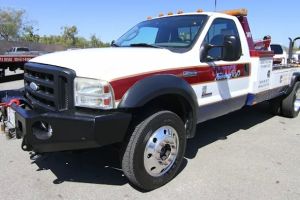
United Towing Service Inc.
26170 Adams Ave, Murrieta, CA 92562, USA
1. Check the Weather Forecast
Always stay updated on the weather forecast. Avoid towing if severe weather warnings, such as snowstorms or hurricanes, are issued. If towing is absolutely necessary, prepare for the worst-case scenario and have contingency plans in place.

J & J Towing
4560 N Webster Ave, Perris, CA 92571, USA
2. Maintain Your Vehicle and Towing Equipment
Ensure your towing vehicle is in top condition. This includes checking tires for adequate tread, ensuring the brakes are responsive, and making sure that the towing equipment is functioning properly. Properly maintained equipment is less likely to fail in adverse weather conditions.
3. Use the Right Tires
Tires are one of the most important elements of towing in harsh weather. For icy or snowy conditions, use snow chains or winter tires to ensure better traction. In rainy or wet conditions, tires with deep treads will help you maintain control of the towing vehicle.
Important Safety Measures for Towing in Bad Weather
There are several safety measures that towing companies and drivers should implement to reduce the risk of accidents during harsh weather conditions. Below are key practices to follow:
1. Slow Down and Increase Following Distance
Driving at reduced speeds allows for better control of both the towing vehicle and the towed load. A longer stopping distance is essential when towing in poor weather, so increase your following distance to give yourself enough time to react to any changes on the road.
2. Use Proper Lights and Signals
In conditions with low visibility, use all available lights on both the towing vehicle and trailer. Turn on hazard lights if necessary and ensure that your brake lights and turn signals are working properly to signal other drivers on the road.
3. Avoid Sudden Movements
Sudden steering or braking movements can cause the towing vehicle or trailer to lose control in slippery conditions. Always make gradual turns and brake slowly to prevent accidents or jackknifing.
Real-Life Towing Accident Case During Harsh Weather
Last winter, a construction company had to transport a heavy-duty bulldozer across state lines during a snowstorm. Despite the preparation, the towing team did not account for the intense black ice on the road, causing the vehicle to lose traction and the bulldozer to jackknife. Fortunately, no one was injured, but the company suffered significant delays and incurred high towing costs to resolve the issue.
This case illustrates how unpredictable weather can turn a routine towing job into a major accident if the proper safety measures are not followed. By investing in safety measures like weather preparedness, equipment maintenance, and choosing a reliable towing company, this type of incident could have been avoided.
Choosing the Right Towing Service for Harsh Weather Conditions
Choosing a towing service with expertise in handling harsh weather conditions is critical. Look for companies that have experience towing during severe weather and are equipped with the right tools for the job. Rescue & Towing is one such company known for its professionalism and ability to operate in difficult weather.
Rescue & Towing offers a fleet of specialized vehicles designed for adverse weather conditions, including snow and ice. Their highly trained drivers follow strict safety protocols, ensuring that your equipment or vehicle is safely towed regardless of the weather. Whether you're dealing with a snowstorm, heavy rain, or icy roads, you can rely on Rescue & Towing to deliver your vehicle safely.
To ensure your towing needs are met safely during harsh weather, contact Rescue & Towing. For more details, click here to learn more about our services.

